It is entirely possible that some people are not aware of the mechanism by which the penis becomes erect. Because it arises spontaneously in relation to any form of sexual stimulation, the failure of an erection has long thought to be psychological. However, it must be clearly understood, that even if it is psychological in character, there has to be a physical mechanism.
Erectile dysfunction (ED) is a common clinical entity that affects mainly men older than 40 years and so it has been generally thought that aging is a factor. It is associated with several lifestyle factors, including obesity, limited or absence of physical exercise and lower urinary tract symptoms. It has also long been associated with diabetes and hypertension and is a strong predictor for coronary artery disease. Therefore, a patient presenting simply with ED as his only symptom should receive cardiovascular assessment. Metabolic syndrome is the term given to a cluster of biochemical and physiological abnormalities associated with the development of cardiovascular disease and type 2 diabetes. It is reported to be the most important public health issue threatening the health of men and women all over the world. Its current prevalence is said to be approximately 30% but the numbers are continuously increasing. The syndrome is considered a risk factor for ED by itself.
The Autonomic Nervous System
As has been described in the pages of this website many times, the autonomic nervous system (ANS) is almost completely automatic and is governed by controls in the limbic system of the brain and the brainstem. It consists of two major components, the sympathetic and parasympathetic systems. These two branches of the ANS always work in concert, emphasizing the “do’s” and “don’ts” of body functions. In order to become erect, the arterial blood is pumped into erectile tissue in the penis and the venous return is occluded. This action is under the control of the parasympathetic branch of the ANS, while ejaculation is under the control of the sympathetic branch. Obviously, this is complex because the two branches have to be able to coordinate their activity. That is why ED is a symptom of dysautonomia, a condition that may present with a variety of seemingly unrelated symptoms. These include: fatigue, difficulty concentrating, orthostatic intolerance, heart palpitations, constipation or diarrhea, poor appetite or early satiety, urinary retention or incontinence and, as we have pointed out, ED. Failure to connect the diverse symptoms with a single underlying mechanism may lead to incorrect diagnoses, inappropriate interventions and frustration on the part of both doctors and patients.
An otherwise fit young man, leading an active life, whose only complaint at presentation was dizziness after extreme exertion, has been reported. Subsequently, he developed typical symptoms of autonomic failure, with postural dizziness, urinary abnormalities and erectile failure. Although so-called psychogenic ED is more prevalent in the younger population, at least 15 to 20% of these men have an organic etiology, shown to be a predictor of increased future morbidity and mortality. It is estimated that it affects 20% of men above 40 years of age with the incidence increasing with increasing age. For this reason studies are more frequently carried out among middle-aged and elderly man with underlying the comorbidities such as diabetes, cardiovascular or neurological pathologies and medication. Please note the inclusion of medication, many of which are known to precipitate thiamine deficiency.
The Role of Nutrition in Erectile Dysfunction
A variety of studies have indicated a beneficial effect from vitamin D supplementation on the development of type-2 diabetes. The vitamin biotin also regulates the synthesis of insulin. Benfotiamine, a derivative of thiamine, together with pyridoxamine, a vitamer (any one of a number of chemical compounds, generally having a similar molecular structure, each of which shows vitamin activity in a vitamin-deficient biological system) of vitamin B6, both have properties that make them valuable therapeutic adjuvants in the treatment of diabetic complications. Thus, various vitamins and their derivatives have profound therapeutic potential in the prevention and treatment of type-2 diabetes.
Thiamine is an essential cofactor in carbohydrate metabolism and individuals with diabetes are thiamine deficient. The pathophysiology of recognized complications of thiamine deficiency is similar to that underlying atherosclerosis and the metabolic syndrome, namely oxidative stress, inflammation and endothelial dysfunction. The potential benefit of long-term replacement of thiamine in diabetes is not yet known but may reduce cardiovascular risk and other complications.
Dysautonomia
A 42-year-old HIV-positive woman had recurrent episodes of vomiting and developed severe dysautonomia, together with the classical manifestations of Wernicke’s encephalopathy. The authors go on to say, “As dysautonomia is frequently the earliest sign of beriberi (the classical thiamine deficiency disease), this case illustrates the continuum between these two diseases whose cause, symptomatic thiamine deficiency, is the same”. It is probably true to say that the recurrent episodes of vomiting were the first manifestations of beriberi rather than being a precipitating factor. Recurrent vomiting as a symptom of beriberi is rarely appreciated by physicians. In fact none of the symptoms are pathognomonic (essential to THAT diagnosis). The point that I am trying to make here is the fallacy of believing the present medical model that different diseases each have their specific differences in etiology and their separate names.
We have tried to show that ED is a form of dysautonomia and has the same underlying cause as metabolic syndrome, diabetes and cardiovascular disease, namely a deficiency of cellular energy, particularly in brain. That is why dysautonomia is the key to understanding why it has been associated with so many different named diseases. It is because the control mechanisms of the autonomic nervous system in the limbic system and brainstem are so highly sensitive to defective energy metabolism as depicted by thiamine deficiency. In our book “Thiamine Deficiency Disease, Dysautonomia and High Calorie Malnutrition” we make a plea for recognition of the widespread ingestion of empty calories as a cause of thiamine deficiency. It is suggested that the common presentation of erectile dysfunction is a symptom that represents poor nutrition, fed by perhaps the commonest of all addictions, namely sugar. The reason for the association of ED with aging is probably because of a natural slow decline in energy metabolism. Is it possible that energy metabolism is the key to all manifestations of disease?
We Need Your Help
More people than ever are reading Hormones Matter, a testament to the need for independent voices in health and medicine. We are not funded and accept limited advertising. Unlike many health sites, we don’t force you to purchase a subscription. We believe health information should be open to all. If you read Hormones Matter, like it, please help support it. Contribute now.
Yes, I would like to support Hormones Matter.
Image by krakenimages.com on Freepik.


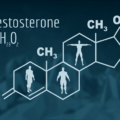
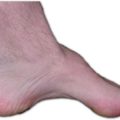

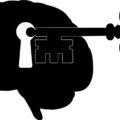




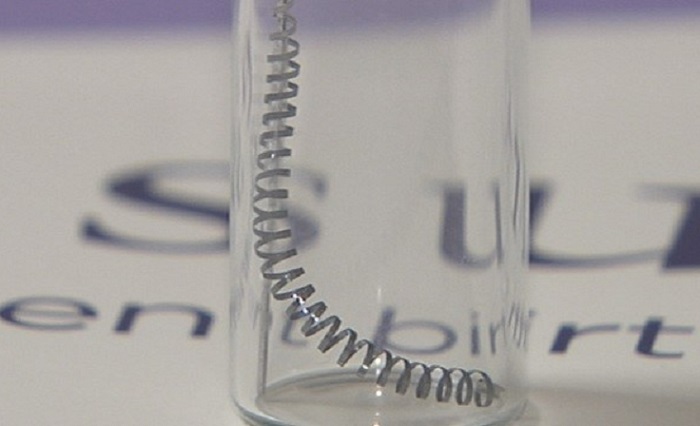

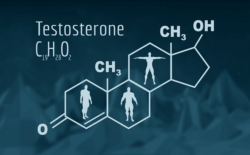


Hi Dr Lonsdale,
I’ve read your book and read a lot of this blog, I think(hope) found an answer to to my problems, wondering if I could please have some advise.
Long story short I went from being a very successful entrepreneur to now for the past 4 years to work as a janitor as not able to do my business or any mental work anymore do to insane brain fog/fatigue.
Synopsis – At 23 I left for Asia and started my own marketing company, I was already feeling a bit down but anyways as the years progressed I kept feeling worse until I got to the point of not being able to do much
I’m 32 now and suffer from:
1) Intense brain fog – I use to be fairly intelligent and capable, now everything is so hard, can’t think, constant fog
2) Very poor memory
3) Fatigue
4) No sex drive and erectile dysfunction
5) React badly to all foods it seems
6) No motivation to do anything
7) severe anxiety and depression
To say the least the last 7-8 or so years of my life has been miserable, can’t have a relationship because of this(performance and no energy) and not being able to follow my passion in life(business)
I’ve seen countless doctors, spent a fortune, have had so many scans to rule things out etc and beside hypo-thyroid nothing really found (taking ndt for thyroid but hasnt helped at all even though labs look normal) Doctors just want to give me anti depressants which I refused as obviously not fix anything and I wasn’t depressed before all this started nor did I have a reason to be at the time (although now different story)
After reading your book and this blog I think my symptoms match but not sure? Unsure where to start, really would like to get my life back. I see in your book it mentions IV vitamin therapy for people with severe cases, but I live in Canada and its very hard to find proper care here. Not sure where to start, allithiamine + b complex + magnesium or if more will be needed in my case?
Thank you
Just a small correction: erection is PARAsympathetic while ejaculation is sympathetic. It is one of the reasons why men feeling very stressful and anxious are prone to ED and premature ejaculation.
You are quite right. Sorry for the error and thanks for pointing it out.
Sorry, Dr. Lonsdale missed your reply,
I started taking it from reading your articles and book. I take Lipothiamine mostly now. I have struggled with fatigue, autonomic dysfunction and pain for years. It started after a background period of physical injury, significant stress and now I know the poor modern diet. After a Doctor prescribed me Dexamethasone 30mg twice a day for a week or so and stopped it abruptly cause it made me not feel well; my symptoms of increased fatigue, difficulty concentrating, autonomic dysfunction etc increased tremendously. That was years ago…1995.
I got no answers from Medical community so been learning on my own since then mostly in area of nutrition/supplements, Stress theory(read some of Hans Seyle work years ago) trying to figure out what was going on with my autonomic system. etc. I helped myself to a fair degree.
I still have difficulty with a lot of physical activity or “post exertional malaise” especially if it is anaerobic type like heavy lifting such as carrying a desk up some stairs or lifting garden soil bags. If depends on the day and it can take days to a week to recover. It is as if I had just finished an intense weight lifting/body building workout as in college but not recovering it hangs around and can make your thinking slow and light headed upon standing. I remember years ago thinking “what am I missing that needs to build up again to recover? It is like I am being poisoned with lactic acid”. But if I ride a bicycle within reason that is more aerobic type not so drastic of an increase in symptoms.
I cant express sufficiently in words my gratitude and respect for you and your work for giving me and others a better understanding.
Towards that end of educating others this podcast episode from NPR’s Hidden Brain: “How Science Spreads: Smallpox, Stomach Ulcers, and ‘The Vegetable Lamb Of Tartary” It is about how information and misinformation spread in the world of science and why evidence is often not enough to convince others of the truth. It includes a segment on Ignaz Semmelweis. The podcast is about 38 minutes.
https://www.npr.org/2019/01/11/684435633/how-science-spreads-smallpox-stomach-ulcers-and-the-vegetable-lamb-of-tartary
Todd
I take it that this was a temporary manifestation of supplementation. Why did you begin to supplement with thiamine? Obviously it stimulated the sympathetic branch of the ANS and implies that you were thiamine deficient to begin with.
This is interesting. I am 57 years and experienced an increase in nighttime and morning erections when starting Thiamine hydrochloride a year or so ago. In fact, the first night after taking it. I wondered if it was the Thiamine and did a cursory review of some comments on Swanson or I-herb. I found two comments alluding to the same experience with supplementing thiamine. I considered this significant as it would not be a common response to any supplement or that someone would necessarily volunteer this information; or connect it to the thiamine in instances of perhaps a lag time of days or weeks to increased erections than I experienced